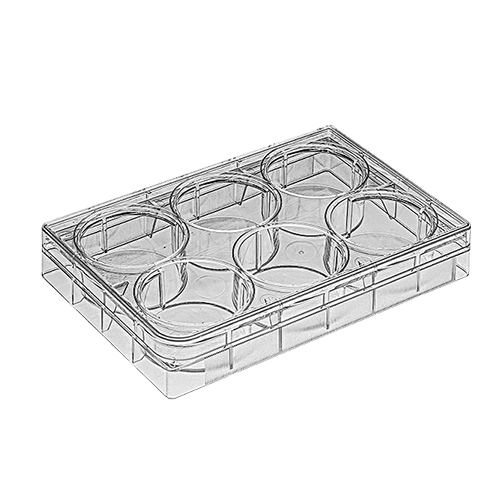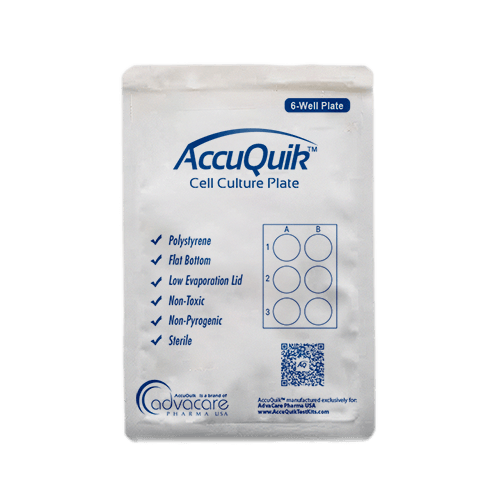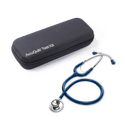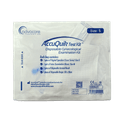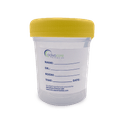Well Plate
Wells
Bottom Shape
Surface
Packaging
What is a Well Plate?
A Well Plate is a laboratory tool that is a sterile flat plate used to hold a specific volume of liquid or sample for scientific research and diagnostic testing. Each well is designed for uniform volume to ensure equal growth surface area, and they are suitable for all common instruments and automation.
The plates are available with different quantities of wells, including 6, 12, 24, 48, or 96, which allows for different sample volumes and experimental setups. The bottom shape of the wells is produced as U-shaped, V-shaped, or flat, and the surface is available as treated or non-treated.
AdvaCare Pharma manufactures Well Plates in ISO and CE-certified facilities situated in India, China, and the USA. Every facility and production plant strictly adheres to rigorous international standards, ensuring the utmost quality and safety.
Product Specifications
Bottom Shape
U-Shaped well plates have a concave bottom with a rounded U shape. This design is often utilized for applications involving the aspiration of liquid samples, such as cell culture supernatants or immunoassays.
The U-shape can help to facilitate the complete removal of liquid from the well without leaving any residual volume.
V-Shaped well plates have a conical or v-shaped bottom. This design is suitable for applications involving centrifugation or the sedimentation of particles.
The v-shape well can help aid in the concentration of particles or cells at the bottom of the well, which makes it easier to collect or analyze them.
Flat well plates feature a smooth and flat surface at the bottom of each well. This design is versatile and suitable for many types of applications in the laboratory, including cell culture, protein assays, and chemical reactions.
Flat bottom plates also help provide a larger surface area, which allows for greater cell attachment, which can be preferred for microscopic analysis.
Why are we a leading Well Plate manufacturer?
AdvaCare Pharma is an American-owned pharmaceutical company that specializes in manufacturing and distributing reliable medical products, including Well Plates and our entire range of diagnostic detection devices. Our company utilizes a unique supplier-distributor relationship that differentiates us from other large-scale medical manufacturers.
Over the past 20 years, AdvaCare Pharma has cultivated a strong reputation as a leading pharmaceutical distributor across 65 regions. Our well-established worldwide network includes distributors, hospitals, pharmacies, and many other institutions.
Uses
What is a Well Plate used for?
It is used to hold samples, reagents, or compounds for various laboratory applications.
How should Well Plates be sterilized after use?
The sterilization method varies depending on the material of the well plate. It is recommended to consult the included packaging for the recommended protocols for sterilization and decontamination.
How should Well Plates be stored when not in use?
Unused well plates should be stored in a clean and dry environment. In order to maintain their integrity and prevent contamination, they should be kept out of direct sunlight and away from potential sources of contamination.
FAQs
Should a treated or non-treated Well Plate be used?
The decision between a treated or non-treated well plate is dependent on the specific requirements and application of the samples or assays being performed. Non-treated well plates feature a hydrophobic surface that does not promote cell or protein adhesion, making them suitable for assays that do not require cell attachment or when it is desirable to minimize non-specific binding. This is commonly used for solution-based assays, such as ELISA or PCR tests.
Alternatively, treated well plates feature a hydrophilic or tissue culture-treated surface. This helps to promote cell adhesion and enhances the attachment and growth of cells. This style of well plate is ideal for cell-based assays, cell cultures, or experiments requiring cell attachment and growth.
What are the differences between the types of bottoms of Well Plates?
The differences relate to their specific applications and the types of samples that each well plate is designed to accommodate. Some considerations are the sample type, liquid handling requirements, cell attachment, and downstream analysis methods.

You might be interested in...
Why AdvaCare Pharma?
As an industry leader, we are aware of our responsibility to provide affordable and sustainable solutions to improve healthcare worldwide.
